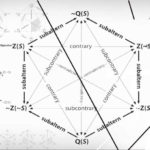We run our website the way we wished the whole internet worked: we provide high quality original content with no ads. We are funded solely by your direct support. Please consider supporting this project.

Why Does God’s Activity Seem So Arbitrary?
Why? It’s the question that never goes away. Why is one infant born sickly and deformed when at the same time another is born perfectly healthy? Why does tragedy repeatedly strike one family while another seems to enjoy uninterrupted peace? On and on we could go with examples. It all seems so arbitrary and unfair.
And this apparent arbitrariness carries over to the way God answers prayer. While most people who regularly pray tell of occasions when their prayers were miraculously answered, they also admit that there is no rhyme or reason as to why some prayers are answered and others aren’t.
We can appeal to the free will of humans and angels to explain why evil in general must be allowed. But this alone does not explain why any particular evil occurs. And it doesn’t explain God’s seemingly arbitrary involvement in the world. Why does God intervene to stop evil in one instance but not in another?
In trying to answer this question, I must confess that what I actually believe is that there can be no final explanation to this question. The arbitrariness of life is a mystery. Yet everything hangs on where we locate this arbitrariness and mystery. Everything hangs on what we think we can and can’t know.
We customarily assume we know a lot about creation but very little about God. After all, we can see creation, but we can’t see God. Creation is finite, but God is infinite. While we can explore creation, we can’t explore God. And since it’s usually assumed that God directly or indirectly controls everything that occurs in creation, we are inclined to attribute the arbitrariness of creation to his mysterious will.
I argue for the opposite view. Because of God’s self-revelation in Jesus Christ, we can be confident of our knowledge about God’s character and general purposes for our life. What we can hardly begin to fathom, however, is the vast complexity of creation, a creation that includes an untold number of human and spiritual free agents whose decisions affect much that comes to pass.
This is not at all to suggest that we know everything about God. To the contrary, there are aspects of God that are utterly beyond comprehension. But we can know what is most important to know, namely, that when we see Jesus Christ we see God. In Christ we confidently know God’s character and purposes. Therefore, when we observe that which is inconsistent with the character of God revealed in Jesus Christ, these things ultimately come from agents who oppose God.
However, we know next to nothing about how these agents’ wills affect what comes to pass.
Behind every particular event in history lies an impenetrably vast matrix of interlocking free decisions made by humans and angels. We experience life as largely arbitrary because we can’t fathom the causal chains that lie behind every particular event. In Christ, God’s character and purposes are not mysterious, but the vast complexity of causal chains is.
The mystery of evil and the question of “why”, therefore, is about an unfathomably complex and war-torn creation, not about God’s character and purpose in creation.
—Adapted from Is God to Blame?, pages 78-80
Photo credit: ignis via VisualHunt / CC BY-NC
Category: General
Tags: Character of God, Free Will, Jesus, Prayer, Problem of Evil
Related Reading

The Logical Hexagon Made Simple
by: Greg Boyd The Hexagaon in a Nutshell For those of you who don’t have the twenty to thirty minutes it will probably take to read this essay but who nevertheless would like to have some idea of what the Logical Hexagon is all about, here is my two sentence elevator speech: The Logical Hexagon…

Your Prayers Matter
My conviction is that many Christians do not pray as passionately as they could because they don’t see how it could make any significant difference. They pray, but they often do so out of sheer obligation and without the sense of urgency that Scripture consistently attaches to prayer. The problem, I believe, is that many…

The Image of God
Distorted from digma.com Is the image of God you hold in your heart one that attracts or repels you?

Hate-Filled Prayers
I came across a story about this billboard at 4:00 yesterday morning and tweeted on it. It would be easy to dismiss this sad display as an isolated act of a crazed fanatic, but I think it actually symbolizes the demonic animosity that permeates our current political climate. In fact, this is the third time…

What I Am, and Am Not, Doing In These Blog Posts
In this post I’d like to try to help some potentially frustrated readers by explaining what I am, and am not, trying to accomplish in this series on the violent portraits of God in the OT. First let me explain something. My forthcoming book, The Crucifixion of the Warrior God, fleshes out and defends a…

Would God Kill a Baby To Teach Parents a Lesson?
Question: We have a group of guys that are going through your book “Is God to Blame” and a question came up that I would be curious how you would look at it. In the beginning of the book you ask the question “do you really think that God kills babies to teach parents a lesson?”…
